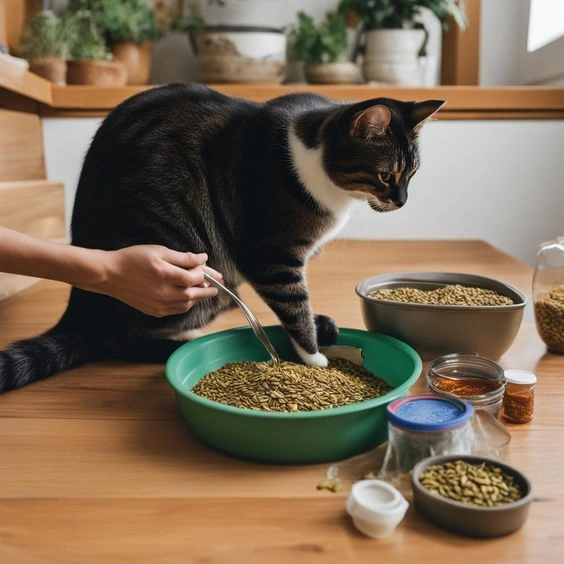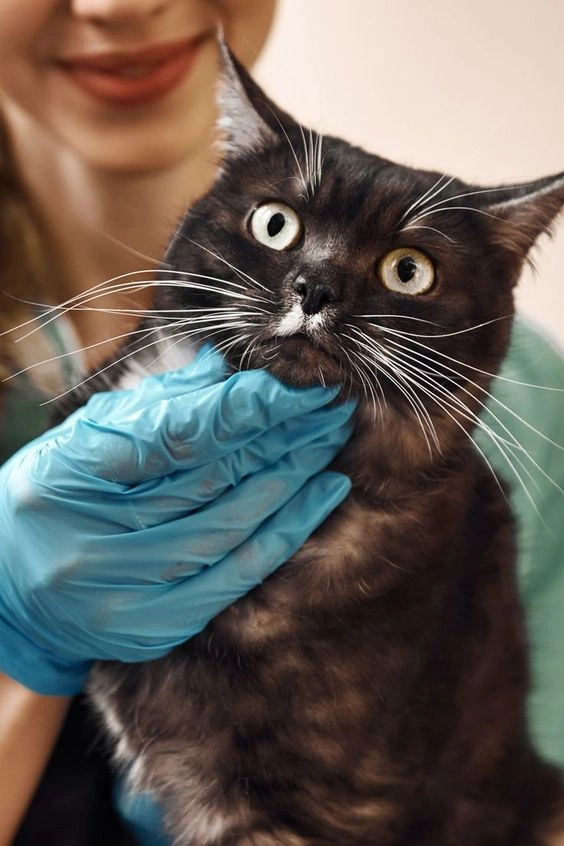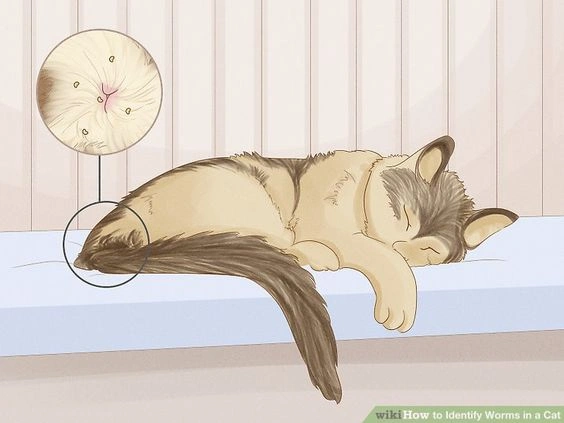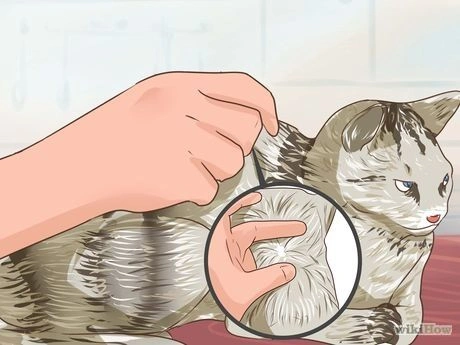Last Updated on March 1, 2024 by Aftab Tariq
Deworming cats is crucial for cat owners. When we talk about worms, we usually think about the long wiggly ones we see in the soil.
But worms that live in animals like dogs and cats are different and can be a big problem. They’re like tiny pests that can make your cat sick.

It’s really important for cat owners to deworm their cats. Doing this can actually save your cat’s life. Kittens, especially, can get very sick if they have worms in their bodies.
This is because kittens are still growing and need enough good food to grow properly. Worms take away these important nutrients from kittens, which can make them unhealthy.
As a pet owner, it’s important to know about the different types of worms that can affect your cat, what signs to look for if your cat has worms, what things make it more likely for your cat to get worms, and how to treat and prevent worms in your cat.
Types of Worms in Cats
Deworming cats is an important thing to do because cats can get different kinds of worms that can make them sick.
Some common worms that cats can get are:
Roundworms: These worms are the most common in cats and dogs. They live in the intestines and can make cats sick, especially when they are young. Cats can get roundworms from eating things like roundworm eggs, mice, or drinking milk from a mom cat who has roundworms.
Hookworms: These worms live in your cat’s intestines and eat their blood. They are very dangerous, especially for young kittens, because they can cause bleeding in the intestines. Cats can get hookworms from contaminated soil or poop.
Tapeworms: These worms are long and skinny, and they stick to your cat’s intestines. They have different parts called segments, and each segment can make more worms. You might see these segments in your cat’s poop, and they can look like tiny seeds or rice grains. Cats can get tapeworms from eating fleas or infected rodents.
Sometimes, cats can also get other worms and parasites like whipworms, stomach worms, coccidia, giardia, or toxoplasma, but this is rare.
Cat Worm Symptoms
How can you know if your cat has worms? Well, it depends on what kind of worms they have and how bad it is. But generally, your cat might show these signs:

- Fur not looking shiny
- Coughing, hacking, or wheezing sounds
- Throwing up
- Runny poops with mucus or blood
- Not wanting to eat much
- Gums inside the mouth looking pale
- Tummy looking big or swollen
- Feeling weak because of not having enough red blood cells
- Not having enough water in their body
Cats with a lot of worms might lose weight, feel itchy around the bottom, and not grow well. Sometimes, cats can pass on these worms to people, making them very sick.
Cat Worm Risk Factors
Outdoor cats have a higher chance of getting worms than indoor cats, but even indoor cats can get them. There are a few ways your cat could get worms:

From their mom: Kittens can get worms from their mom’s milk when they’re born.
Prey: Worms can be in poop from other animals. If a cat touches or eats something with worm eggs, like infected stools, they could get worms.
Environmental: Worms can be in places like grass that’s been contaminated by poop or other animals. If a cat touches or eats something from there, they could get worms.
Hunting: Cats that hunt small animals like rabbits or mice might get worms from eating those animals.
Fleas: Fleas can carry worms, like tapeworms. If a cat has fleas and swallows them, they could get worms.
Food: If a cat eats meat that’s not cooked enough, it could have worms in it.
If you don’t treat and deworm your cat, it could have serious problems like blocked intestines, heart issues, swollen arteries, or even die. So it’s important to keep your cat healthy by deworming them regularly.
Identifying Worms in Cats

If your cat is having diarrhea and tummy troubles, it might mean they have worms. Take them to the vet. The vet will check their poop to find out which worms they have using a special test called an ova & parasites fecal exam. This test is good at finding worms like giardia, coccidia, and other worms.
You can also ask for another test called a fecal PCR test, which checks for even more things like bacteria or viruses. Both tests need a small poop sample. The vet will send it to a lab to check.
Treating and Preventing Worms in Cats
How Frequently Should Cats Be Dewormed?
Frequently Asked Question
How to Deworm a Cat at Home?
To deworming cats at home, you can use over-the-counter deworming medication specifically formulated for cats. Follow the instructions provided on the medication packaging or consult your veterinarian for guidance. Additionally, keeping your cat’s living area clean and practicing good hygiene can help prevent reinfestation.
What is the Dosage for Deworming Cats?
I am a dedicated content writer with more than five years of experience, particularly skilled in the art of storytelling. My writing journey commenced during my college years, where I pursued journalism and unearthed my talent for creating captivating narratives.



